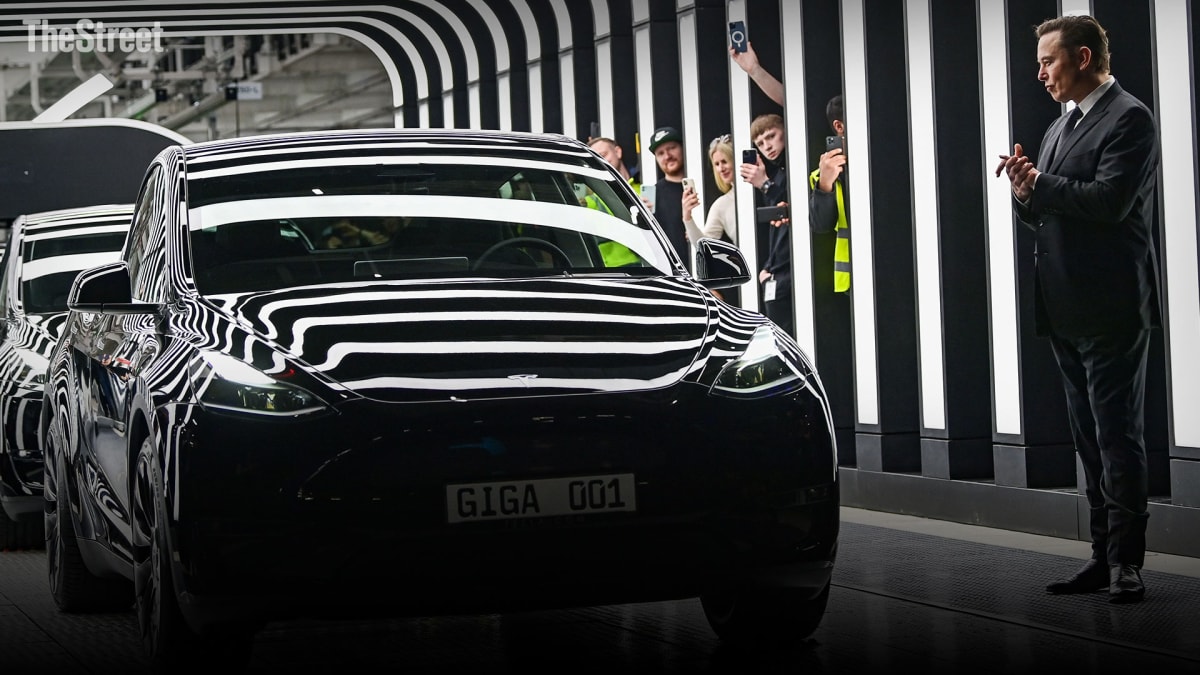
Tesla is determined to continue to stimulate demand for its cars in the face of a global economy that is sending worrying signals.
In the United States, where many economists predict a recession this year, the automaker could benefit from the Inflation Reduction Act (IRA) which extends the federal tax credit of $7,500 to encourage local production and accelerate the adoption of green vehicles by the masses.
The IRA flips the cards and allows automakers, like Tesla (TSLA) and General Motors (GM), which had sold more than 200,000 clean vehicles -- the maximum threshold where the tax credit begins to decrease before disappearing --- to benefit again.
There are, however, price and other criteria that could limit the benefits that Elon Musk's group could derive from this law.
Without waiting for the entry into force of this law, Tesla had already launched major promotions in December. The company had started by offering customers buying its entry-level Model 3 and the Model Y SUV in December the benefit of a $3,750 discount that the group had doubled to $7,500.
The Stock Lost 65% in 2022
These decisions also come after a nightmarish year for Tesla stock on the stock market. Tesla stock prices have fallen 65% in 2022.
The United States is not the only market where Tesla is trying to stimulate demand. The company was doing the same in China, the other major automotive market.
And the group has no intention of stopping this policy of price reductions since Tesla has just extended the special offers made to buyers of Model 3 and Model Y for two additional months. They can benefit from a reduction ranging up to 10,000 yuan or $1,450 if they take delivery of the vehicle by February 28, the automaker said on its website.
In detail, Tesla is extending its 6,000 yuan subsidy started in December, while the remaining 4,000 yuan is linked to the purchase of insurance through Tesla. This latest offer was introduced last November.
All of these Tesla promotions suggest that demand for cars from the world leader in electric vehicles is tight. In addition to the economy, the company is also suffering from increased competition in almost all markets.
In the United States, legacy carmakers like GM, Ford (F) and upstarts like Rivian and Lucid offer electric models. In China, Tesla faces competition from BYD and NIO (NIO), for example. In Europe, Porsche (POAHY) , Volkswagen (VWAPY) , Audi and BMW (BMWYY) offer attractive electric EVs.
The figures for vehicle deliveries for 2022 announced on January 2 by the firm seemed to confirm this trend since they arrived below analysts' expectations. Tesla delivers 1.31 million cars in 2022, up 40% year-on-year. But this is below the 1.33 million expected on average by analysts.
Tesla Produces More Cars Than It Sells
The fourth quarter figures were very disappointing. The automaker delivered 405,000 vehicles in the last three months of 2022, well below the 427,000 expected by analysts.
Deliveries are the most reliable barometer of vehicle sales by Tesla, which has produced more cars than it has delivered. In 2022, production stood at 1.37 million vehicles, including 439,701 units in the fourth quarter.
During the third quarter, the automaker had warned that its production during that period had exceeded deliveries by around 22,000 units. Chief Financial Officer Zachary Kirkhorn had said that the same was likely to happen in the fourth quarter as well.
"On the delivery side, we do expect to be just under 50% growth due to an increase in the cars in transit at the end of the year, as noted, just above," Kirkhorn told analysts during the third quarter earnings' call. "This means that, again, you should expect a gap between production and deliveries in Q4, and those cars in transit will be delivered shortly to their customers upon arrival to their destination in Q1."







